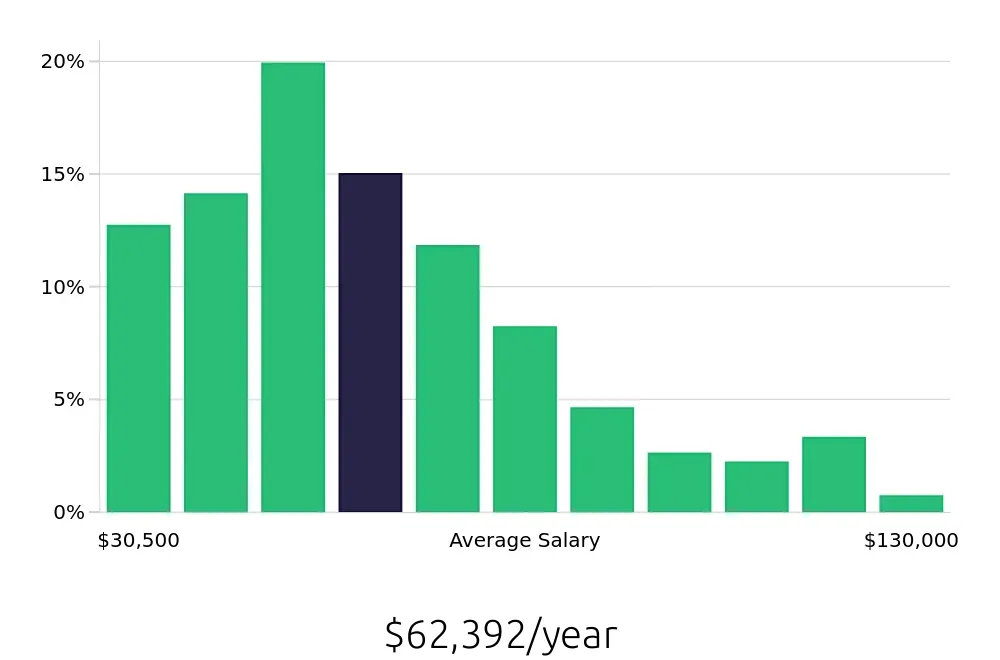Position
Overview
A Claims Analyst examines and processes insurance claims. This professional reviews documents to assess the validity of claims and decides the amount to be paid. They work closely with policyholders and insurance agents. This role involves detailed analysis and critical thinking. It requires good communication skills to explain decisions to claimants.
A Claims Analyst also investigates claims to prevent fraud. They gather evidence and may interview claimants or witnesses. This job often includes using specialized software to manage claims. Analysts must stay updated on insurance laws and regulations. The goal is to settle claims fairly and efficiently. They strive to ensure claimants receive rightful compensation while protecting the company's interests.
Becoming a Claims Analyst is a rewarding career path for those interested in insurance and risk management. It involves assessing and processing claims submitted by policyholders. Here is a clear process to guide someone through becoming a Claims Analyst.
To start, follow these steps:
By following these steps, someone can build a solid foundation and make a successful transition into the role of a Claims Analyst. Each step is designed to provide the necessary skills and knowledge to excel in this field.
Becoming a Claims Analyst requires dedication and time. Most start with a high school diploma. Then, they need to gain some experience or education in a related field. This can take about two to four years. This often includes working in customer service or finance.
Some companies prefer or require a bachelor’s degree in business, finance, or insurance. This education path can add another two to four years. Many analysts also get certifications. These credentials can show a deeper understanding of claims processing. This extra step can take a few months to a year. Overall, the journey to becoming a Claims Analyst can span from two to six years. It all depends on the education and experience one chooses to pursue.
A Claims Analyst is responsible for evaluating and processing insurance claims to determine the validity and extent of coverage. They work closely with clients, underwriters, and other stakeholders to ensure claims are settled efficiently and accurately.
Responsibilities:
Qualifications
A Claims Analyst reviews and processes insurance claims. They assess claims based on policy coverage and investigate the validity of the claim. This role requires attention to detail and strong analytical skills. The job can be found in various industries, including healthcare, finance, and insurance. Responsibilities often include communicating with claimants, gathering necessary documentation, and deciding whether to approve or deny a claim.
Working as a Claims Analyst has several advantages. The role offers stability and often includes a structured career path. It provides opportunities to develop skills in problem-solving and decision-making. Analysts also gain valuable experience in understanding insurance policies and customer service. However, the job has some challenges. It can be stressful due to high volumes of claims and tight deadlines. Some analysts may find the work repetitive over time. Despite these challenges, the job provides the chance to make a real difference in people's lives by helping them during difficult times.
Consider these pros and cons before pursuing a career as a Claims Analyst:
The job outlook for Claims Analysts shows a stable career path for those entering the field. The Bureau of Labor Statistics (BLS) reports an average of 21,500 job positions available annually. Despite a small projected percent change of -3.1% from 2022 to 2032, the role remains significant. This indicates a steady demand for skilled professionals who can manage claims processes effectively.
Claims Analysts can expect competitive compensation. The BLS data shows an average national annual salary of $75,760. Additionally, the average hourly wage stands at $36.43. These figures reflect the value placed on the expertise and responsibilities of this role. With a solid salary, Claims Analysts can look forward to financial stability and growth.
For job seekers, the field of Claims Analysis offers both opportunities and stability. The balance of job availability and compensation makes it an attractive career option. Job seekers should focus on gaining relevant skills and experience to enhance their employability. The role's stability and fair pay make it a wise choice for those seeking a fulfilling career.
